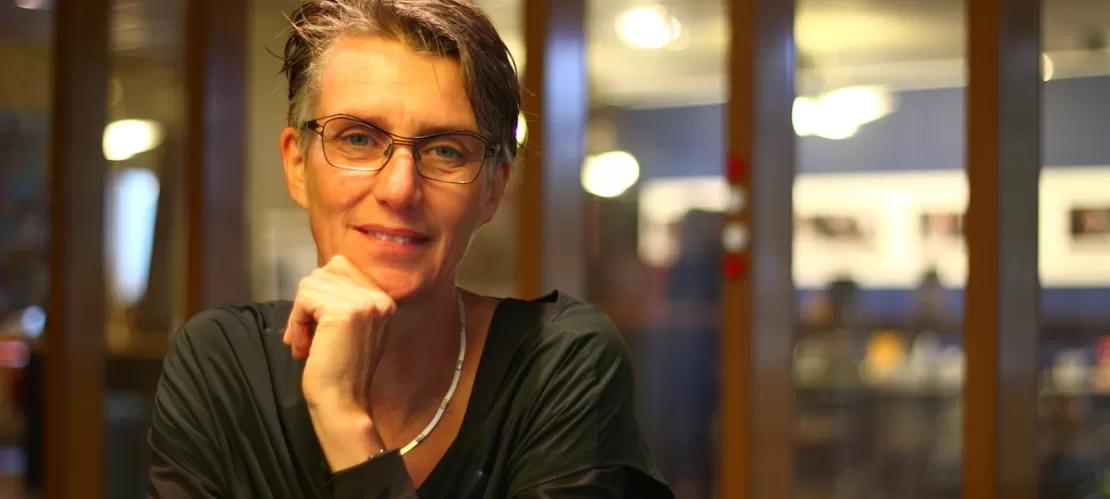
Can you describe how you became one of the first Erasmus exchange students?
Désirée Majoor: I guess you could say we were pioneers in a way. Utrecht University already had a long-standing exchange programme with Bologna before 1987, as did a lot of other universities. The first students that went on Erasmus were mostly from these universities who had bilateral agreements with other universities. Now they just labelled them as Erasmus. I was not a pioneer, but I benefited from the programme.
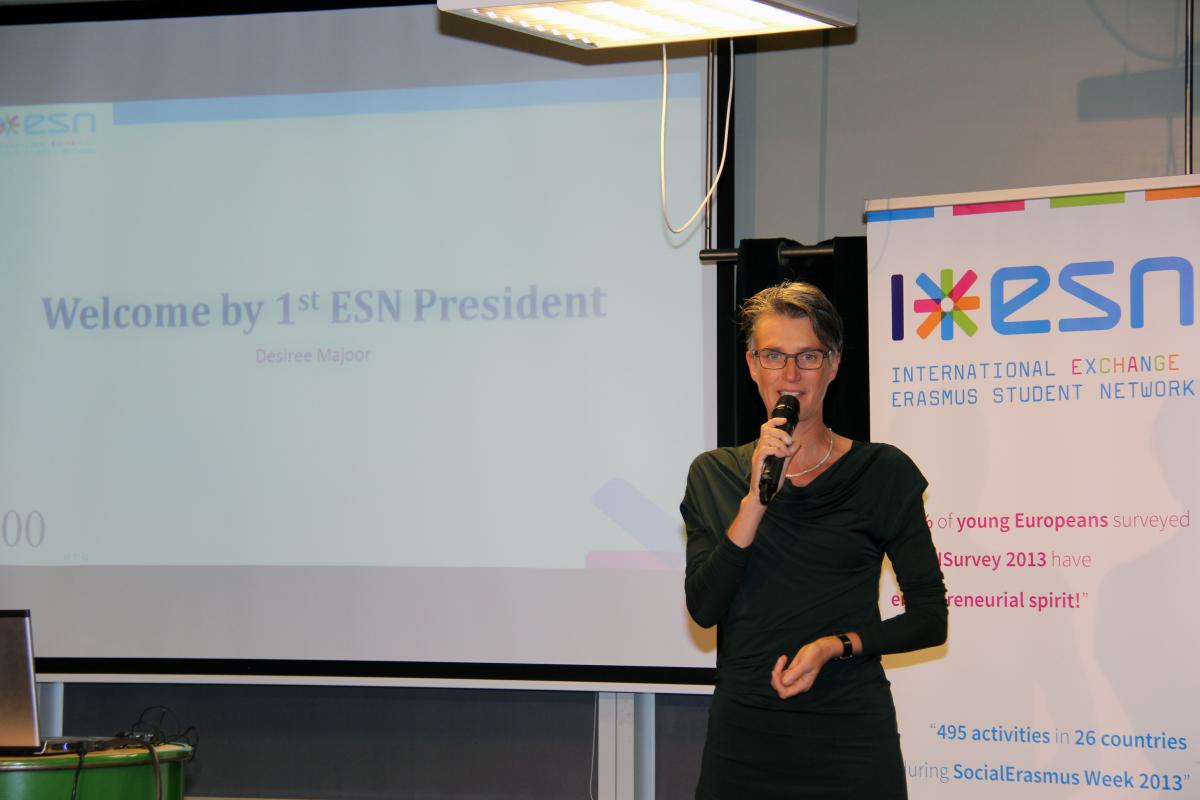
In what ways?
For example, my housing was organised for me. That was very important. I just took a suitcase, jumped on a train, landed in Bologna, and tried to find out myself how things worked. In Italy, it was a challenge of course, but at least I was able to communicate a bit with the Italians. Since I knew I was going to Italy, I took Italian lessons a year before. In those days it was easy to add another subject to your studies. I was doing theatre studies; I simply had to add Italian to my course list. Now it is not so easy anymore. At that time, there was not a lot of organisation, but it did not bother me. Part of the fun is to find things out for yourself and see how it goes. You meet people that way; I still have friends from that period. Also, I was studying for my thesis, so I also had a lot of work.
How did you convince your parents that it was a good idea?
I didn’t even ask them. That’s not normally how I live. On my eighteenth birthday,I moved out and was very independent. I just told them I was going and they had no objections, or at least I don’t remember anything like that. I was independent and I made my own choices.
Did that also have to do with the nature of the Dutch culture?
Possibly, yes. Dutch families were very open that way and still are. Of course, parents are always a bit anxious, but mine didn’t say no.
What was your biggest challenge during your entire exchange?
Living in an Italian student flat, because they all live together with many students in one room. In Holland, you have your own room, even if it’s small. In the Italian student apartment, we had 4-5 people. I remember once I wanted the windows open because that’s how I always sleep at home, but there were major objections to that. The Italian girls were afraid of catching a cold, even though it was 30 degrees. Because of that, they complained to the housing office, and I got a single room for myself, which was a luxury! Of course, that’s just an anecdote, I met a lot of Italians, and made a lot of friends! I still try to go there every year.
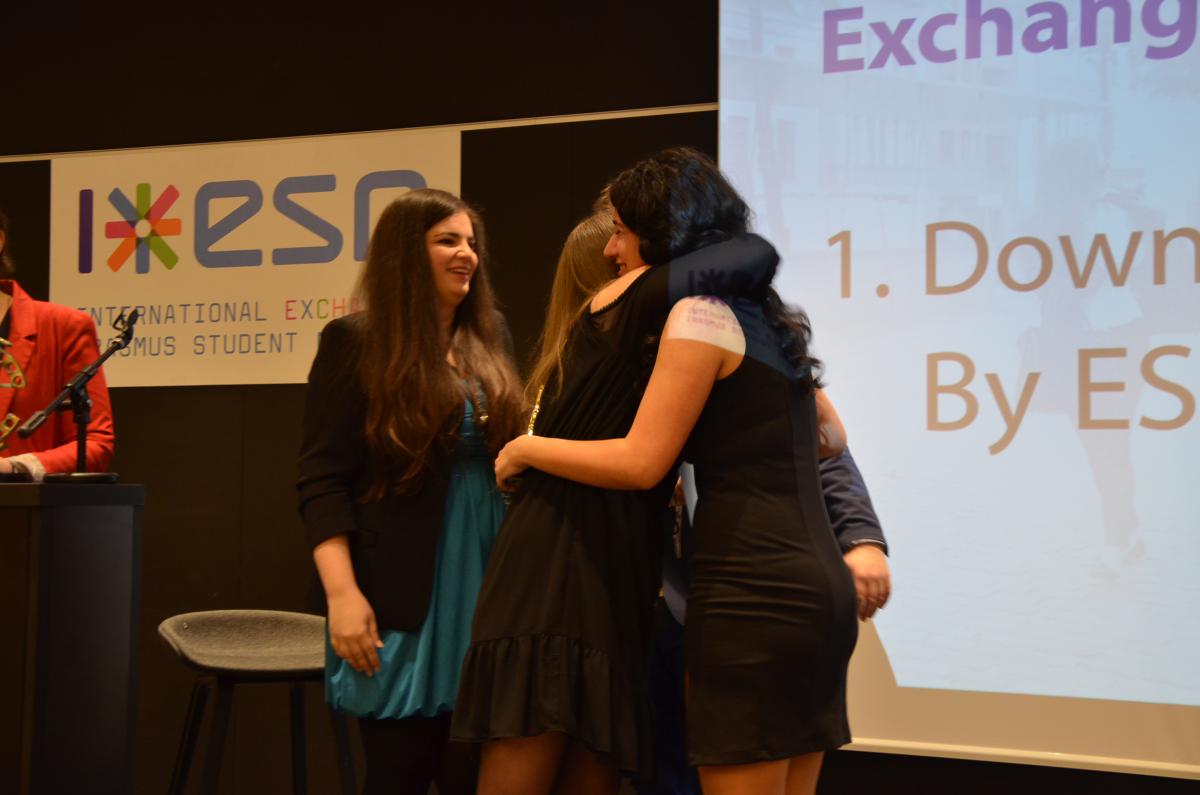
How did your exchange abroad year change you?
One of the things I will never forget is that language is very important. It is much more than just the word or the sentence, you also communicate the impact, the feeling. I found out that when people hear me speaking, when I speak English or Dutch or Italian, it’s all different even though I say the same thing. In English it comes across harsher, in Italian people perceive me as more extroverted and communicative.
That monumental evaluation meeting in Ghent after you all came back from the exchange: what was that like?
It was really all just incidental. They just invited random people to Ghent and it was a coincidence that I was invited and I didn’t have any other obligations at that time. In the evening after the evaluation meetings, the idea to find an organisation spontaneously came up. This came from practical issues that we all discussed during the evaluation. We realised that we could solve these issues ourselves, by coupling locals with exchangers.
The European Commission at that time found our idea very interesting, and they agreed to support us. We began with 7 people, and I became president partly because I live in Utrecht and was close to Brussels, so it was easy to arrange all the administrative work. Of course, it was not just me, all 7 of us were busy setting up our own sections; in Ghent, Paris, Bologna, Copenhagen. We then set up the founding meeting in Denmark because it was cheap to set up an organisation there, and someone there had the connections to make it happen. We discussed more strategically, in terms of policy, and in 2-3 years we had 27 sections. It happened very quickly.
Network organisations are a very strong concept. It was all very random, but that’s how it often goes. It’s not just coincidence of course, it’s a combination of different factors. If it is a good mix then the ideas can really grow.
When you were elected as founding president of ESN, what was your vision for the organisation? What was this vision based on?
The vision from the beginning was of students helping students. Not to be dependent on universities, or on Brussels, but that we can do it ourselves. In practical issues, we can arrange that easily. AEGEE and other clubs at that time were also doing this, but there was still a niche for an organisation with a more specific focus.
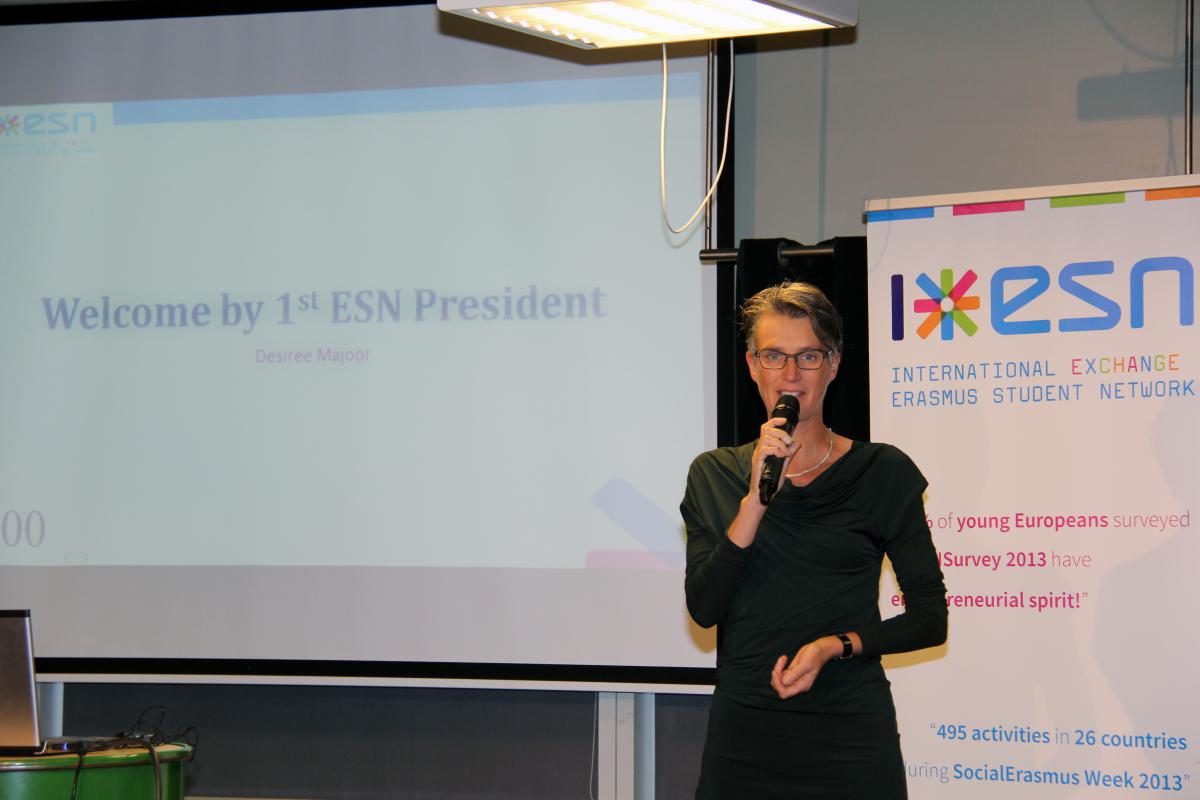
Did you foresee it developing into what it is today?
ESN today has many sections, and an enormous scope. Did I expect that? No, definitely not. The people I was with in Ghent had a perspective of Europe. We saw the potential, but we never thought it would be so big. ESN has gotten a life of its own, and gone into its own development. It now has little to do with me or anyone who started it.
How do you think ESN came to be so successful?
It’s a strong concept, the network organisation. Nowadays everyone’s talking about it, but back then it was quite new. I am not claiming it as a unique idea that we had, but 25 years ago it was not really common. In fact, it was quite experimental. Now we know that network organisations are very strong. Also, at that time, there was a political urgency to internationalise. At that time, many universities saw the chance to diversify and foster international relations, and they went for it.
What’s important now?
ESN was started with the idea of ‘students helping students’. This is still as valid now. I became aware that ESN is now becoming an influential factor in the political arena. We took for granted that the value of exchange is to be interested in other cultures, in other countries, and to look for common ground. This was taken for granted in the beginning, and it’s important to stress that this is an essential value. You will experience that most strongly when you go on exchange yourself.
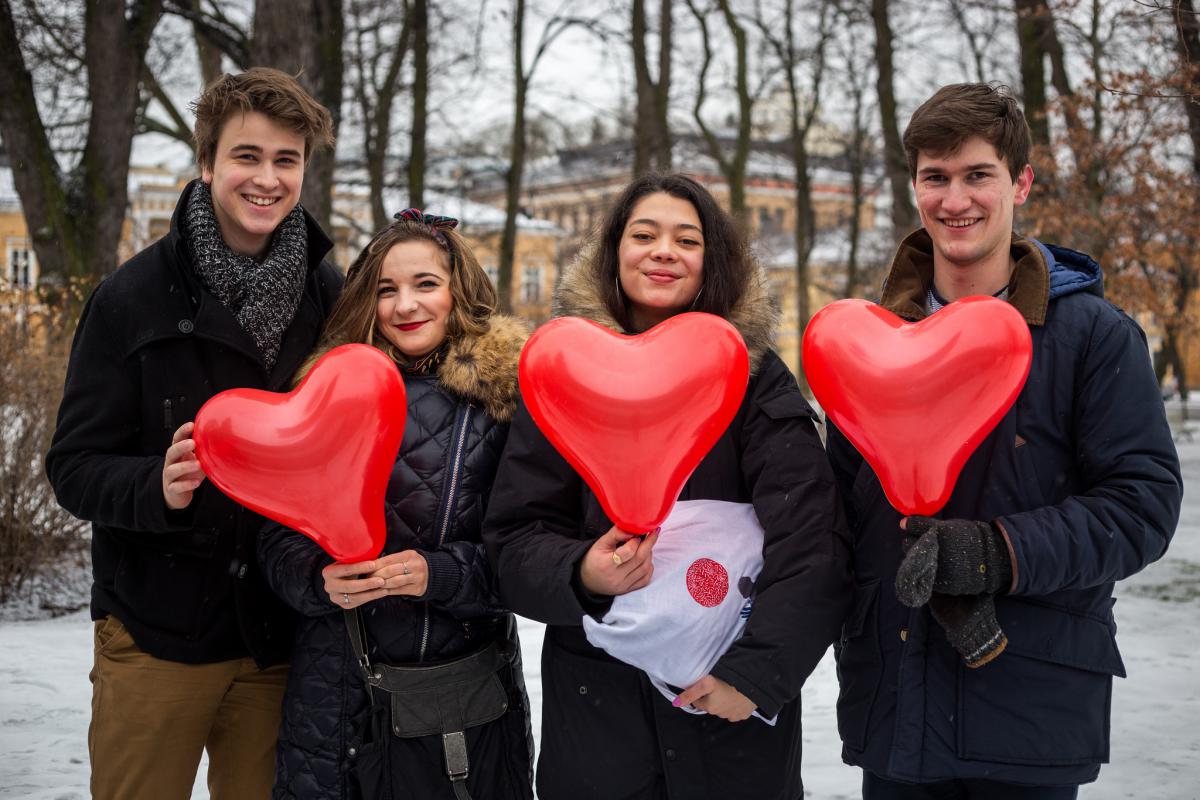
What do you think will be the biggest challenge for ESN and/or educational mobility in the next five years?
I think the challenge we originally had is still there. Although Erasmus has been a big success, in terms of exchange in general, we still don’t have the figures we wanted to get. The original aims are still as important. In educational institutions, the majority of students still haven’t changed their stance on that. It’s not like the percentage of students who take the opportunity to go on an exchange has grown tremendously. It takes a lot more to get people mobile in an educational context.
What does it take then?
People travel a lot nowadays, and it’s easy, so that cannot be the main factor. What are they going to be studying? What kind of content will they receive? Those are the important questions. Many students still underestimate the value of exchange, as compared to finishing their studies as soon as possible. In that sense, political support for these programmes is essential. Erasmus and other similar programmes must continue to be pushed on a political level. I still think it’s necessary that students solve their own problems, that they stay independent. You have to realise that you have much more power and that you can do much more than you think.
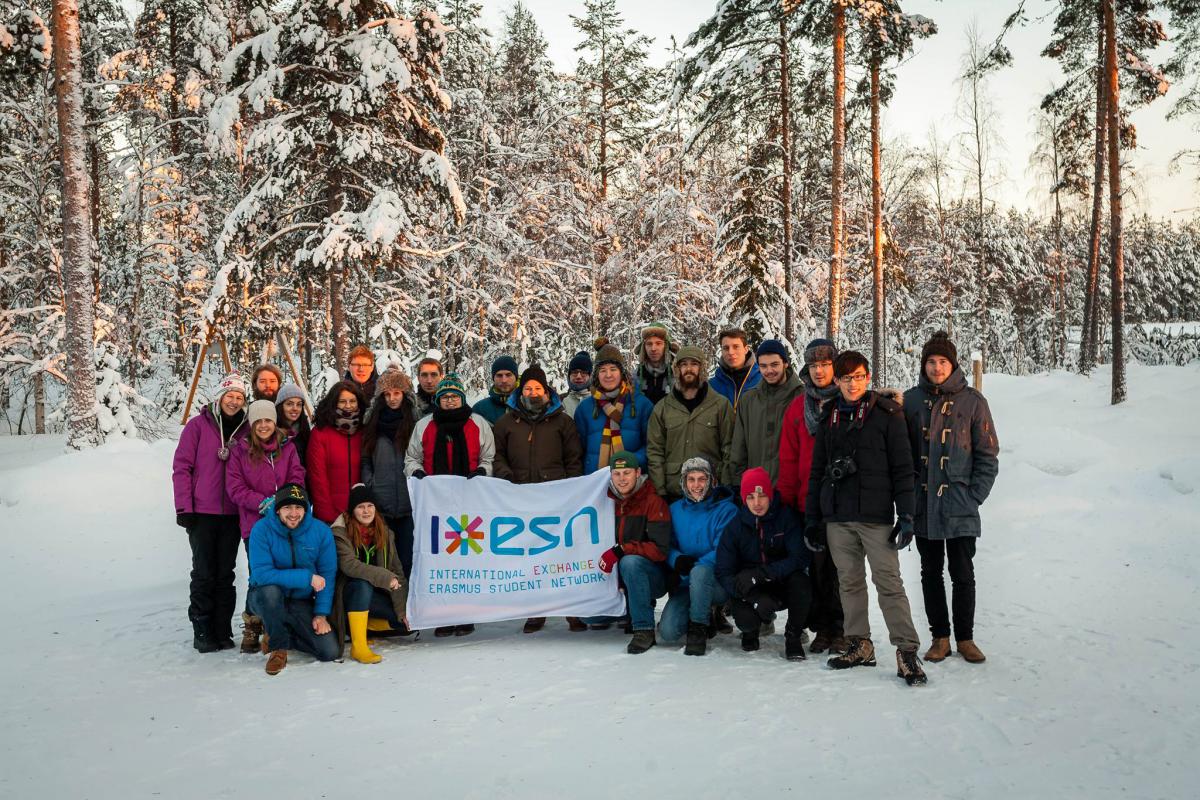
Desiree Majoor is now Vice-President of the board of the Hogeschool voor de Kunsten, Utrecht (Utrecht School of the Arts) and a member of the Topteam Creatieve Industrie (Dutch Creative Council)
The original interview was published in the eXpress Magazine, issue #20, winter 2014/2015.
